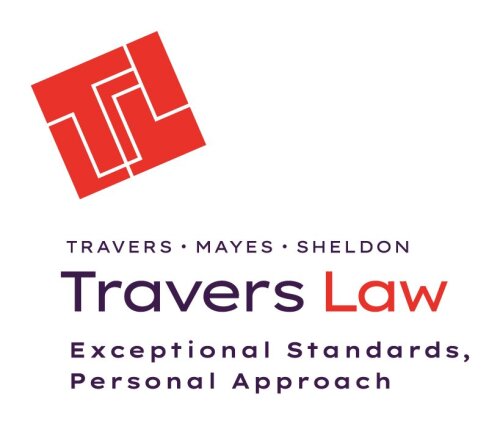Best Child Abuse Lawyers in Waterloo
Share your needs with us, get contacted by law firms.
Free. Takes 2 min.
Free Guide to Hiring a Family Lawyer
List of the best lawyers in Waterloo, Canada
About Child Abuse Law in Waterloo, Canada
Child abuse includes any form of physical, emotional, or sexual harm, or neglect inflicted upon a child or youth. In Waterloo, Ontario, child abuse is taken very seriously under both provincial and federal laws. Whether occurring at home, in an institution, or elsewhere, the law’s primary focus is on the safety and well-being of children. The Children’s Aid Society (CAS), Ontario Ministry of Children, Community and Social Services, police services, and legal professionals are all involved in the prevention, reporting, and prosecution of child abuse.
Why You May Need a Lawyer
Legal guidance is critical in child abuse cases for several reasons. You may need a lawyer if:
- You have been accused of committing child abuse and require representation to protect your legal rights.
- You want to report suspected child abuse and need advice on how to proceed safely and correctly.
- You are a parent or guardian facing a Children’s Aid Society investigation or intervention.
- Your children have been removed from your care and you wish to contest the action or work toward reunification.
- You are navigating custody arrangements where abuse has been alleged.
- You are a victim or are acting on behalf of a child in civil or criminal court proceedings.
A lawyer can help explain your options, defend your interests, ensure court processes are fair, and connect you with other support services.
Local Laws Overview
Several key laws and regulations govern child abuse matters in Waterloo, Ontario:
- Child, Youth and Family Services Act (CYFSA): This Ontario statute places a legal duty on anyone who suspects that a child is being abused or neglected to report their concerns to the Children’s Aid Society. Failure to report can result in legal consequences.
- Criminal Code of Canada: Physical and sexual abuse are considered crimes against children and prosecuted under federal law. Charges can include assault, sexual interference, and neglect causing bodily harm.
- Children’s Aid Society (CAS) Involvement: CAS has the mandate to investigate and intervene in child protection cases. They can remove children from unsafe environments and provide family supports.
- Family Court: Issues of child protection, custody, access, and parental rights are determined in Ontario family courts, considering the child’s best interests as the main criterion.
Additionally, professionals such as teachers, doctors, and social workers have a heightened duty to report suspected child abuse.
Frequently Asked Questions
What is legally considered child abuse in Waterloo, Canada?
Child abuse includes physical, sexual, and emotional abuse, as well as neglect or failure to provide basic needs. The law defines a child as anyone under the age of 18.
Who is required to report suspected child abuse?
In Waterloo, everyone-including members of the public and professionals working with children-has a legal duty to report suspected child abuse or neglect to the Children’s Aid Society.
What happens after a report is made to CAS?
CAS will assess the situation, which may involve interviewing the child, family members, and others. If they believe the child is in immediate danger, the child may be removed from the home temporarily while further investigation occurs.
Can I remain anonymous when reporting suspected abuse?
While you can ask to keep your identity confidential, complete anonymity is not always possible, especially if the case goes to court.
What should I do if I am falsely accused of child abuse?
Seek legal assistance immediately. A lawyer can help you respond to investigations, attend interviews, and represent your interests in court.
What rights do parents or guardians have during a CAS investigation?
Parents and guardians have the right to be informed of allegations, participate in the investigation, and seek legal counsel. They can also present their side in family court proceedings.
What are the possible outcomes of a child abuse investigation?
Outcomes may include closing the file, offering family support services, temporary removal of the child, or initiating court proceedings for permanent changes to custody or access.
Is spanking or corporal punishment allowed?
Canadian law permits limited physical discipline under strict conditions, but excessive force, physical harm, or degrading treatment is considered abuse. Legal advice is recommended if in doubt.
How are children’s voices heard in court?
Family courts may appoint legal representation for children or consider reports from child protection professionals, ensuring children's perspectives are included.
Can a child be interviewed without parental consent?
CAS and police may interview a child without parental or guardian consent when investigating abuse allegations, especially if doing so is necessary to protect the child’s safety.
Additional Resources
- Family and Children’s Services of the Waterloo Region (CAS): The local agency responsible for child protection.
- Waterloo Regional Police Service: Handles criminal investigations into child abuse and emergency interventions.
- Ontario Ministry of Children, Community and Social Services: Provides legislative guidelines and support programs.
- Legal Aid Ontario: Offers legal assistance to eligible individuals involved in child protection and family law cases.
- Child Advocacy Centres: Provide support and coordinated services for child victims and their families.
- Kids Help Phone: A confidential support and counselling service for children and youth.
Next Steps
If you or someone you know requires legal help regarding child abuse in Waterloo, Canada, consider following these steps:
- Ensure Immediate Safety: If a child is in immediate danger, contact the police or CAS right away.
- Document Your Concerns: Record any evidence of suspected abuse or details relevant to your case, including dates, times, and observations.
- Contact Legal Support: Reach out to a lawyer experienced in child protection or family law, or apply for Legal Aid if eligible.
- Seek Support Services: Connect with local agencies for emotional support, counselling, or emergency shelter if needed.
- Follow Legal and Professional Advice: Cooperate with investigations, attend all meetings and court dates, and follow both legal and agency guidance.
Remember, seeking early legal advice can help protect your rights and the best interests of the child involved. If you are unsure where to start, contacting Family and Children’s Services or Legal Aid Ontario can provide an initial direction.
Lawzana helps you find the best lawyers and law firms in Waterloo through a curated and pre-screened list of qualified legal professionals. Our platform offers rankings and detailed profiles of attorneys and law firms, allowing you to compare based on practice areas, including Child Abuse, experience, and client feedback.
Each profile includes a description of the firm's areas of practice, client reviews, team members and partners, year of establishment, spoken languages, office locations, contact information, social media presence, and any published articles or resources. Most firms on our platform speak English and are experienced in both local and international legal matters.
Get a quote from top-rated law firms in Waterloo, Canada — quickly, securely, and without unnecessary hassle.
Disclaimer:
The information provided on this page is for general informational purposes only and does not constitute legal advice. While we strive to ensure the accuracy and relevance of the content, legal information may change over time, and interpretations of the law can vary. You should always consult with a qualified legal professional for advice specific to your situation.
We disclaim all liability for actions taken or not taken based on the content of this page. If you believe any information is incorrect or outdated, please contact us, and we will review and update it where appropriate.










